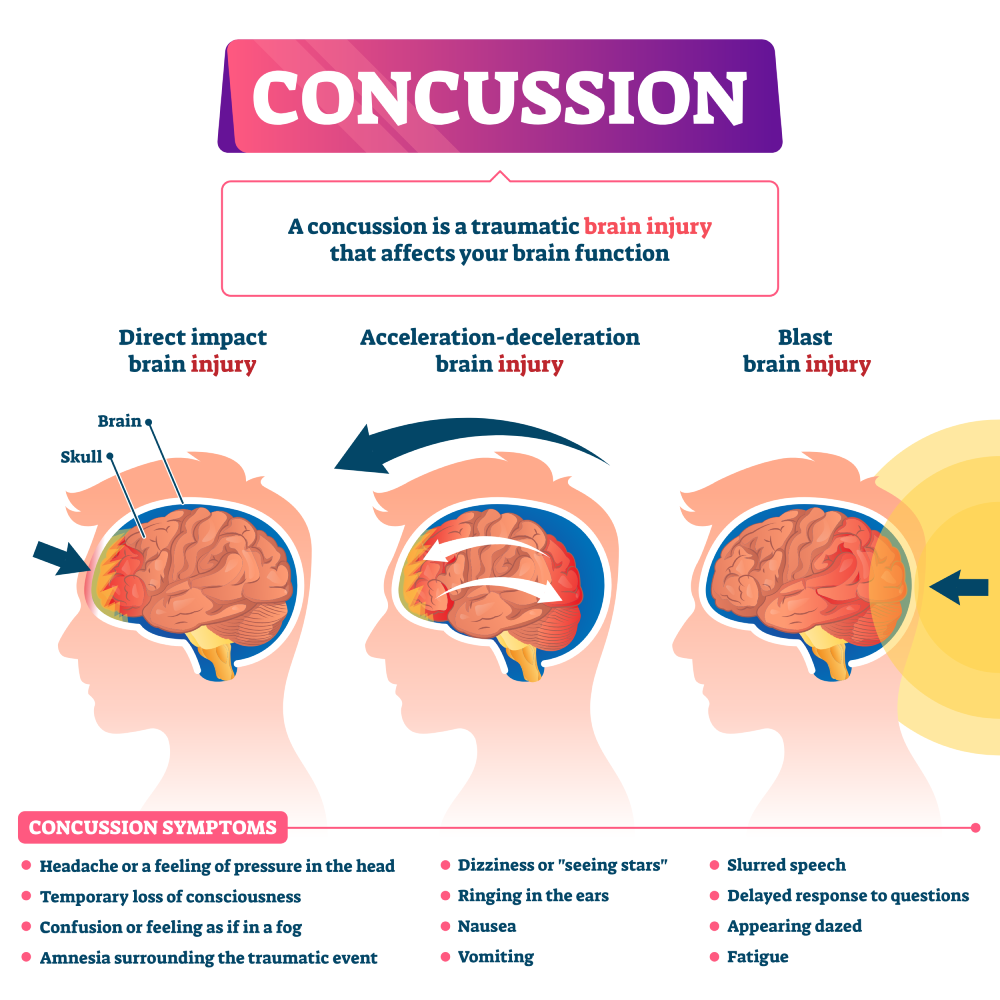What is a Concussion?

According to the Centers for Disease Control (CDC), a concussion is a mild form of traumatic brain injury (TBI) caused by a bump, blow, or jolt to the head. Concussions can also occur from a fall or a blow to the body that causes the head to move rapidly back and forth. Doctors may describe these injuries as “mild” because concussions are usually not life-threatening. Even so, their effects are serious. Understanding the signs and symptoms of a concussion can help you get better more quickly.
After a concussion, a small percentage of people lose consciousness (“knocked out”) for a short time. Not being able to remember events (amnesia) prior to, or following the injury, for a period of time is another sign of concussion. Yet, some people simply feel dazed or confused.
These changes can affect:
- Memory and reasoning
- Balance and vision issues
- Communication, expression and understanding
- Mental health, causing depression, anxiety, personality changes, aggression, acting out, social inappropriateness
More than one mild concussion over months or years can result in cumulative changes in thinking, sensation, language or emotions. Research shows concussions can later cause epilepsy and increase the risk for conditions such as Alzheimer’s disease, Parkinson’s disease, Chronic traumatic encephalopathy (CTE) and other brain disorders. More than one mild concussion within hours, days or weeks can be catastrophic and even fatal.